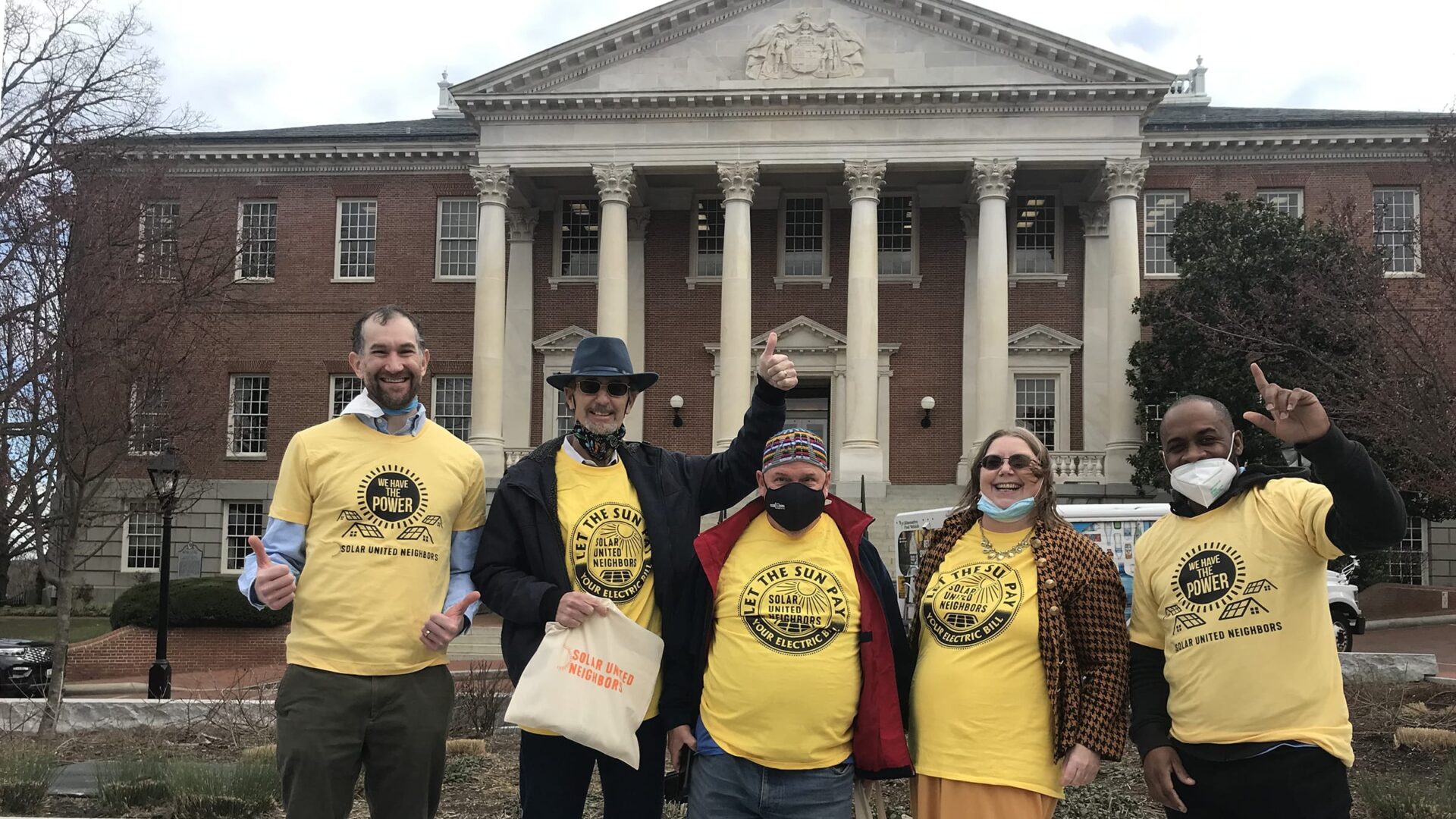So you want your elected official to support solar energy…
- Guide

We say this a lot, because it’s true: When solar supporters join together, we win. Over the past several years solar energy supporters have notched important victories for solar rights.
- In Minnesota we stopped HOAs from unfairly blocking installation,
- In Florida we protected the fair credit solar owners earn from net metering, and,
- Nationally we helped pass the biggest investment in solar in a generation.
These wins don’t just happen. They’re the result of diligent, thoughtful outreach by solar supporters like you. As some in Congress consider repealing important solar investments, it’s critical that solar supporters join together to protect our energy rights.
How you can make a difference
Elected officials want to hear from the people they serve and they want to make informed decisions. (They also want to be re-elected). Unfortunately, too few people take the time to contact their elected officials. Even fewer do it effectively. This means, most of the time elected officials only hear from lobbyists tied to special interests.
So, what do lawmakers find persuasive?
In-person meetings
In person meetings with elected officials or their staff are the most impactful way to persuade legislators. They show them that this is an issue their constituents care about enough to take significant time out of their day to fight for.
You can schedule a meeting with your legislator by emailing their office. Explain the issue you’d like to discuss with them and why it is important to you and your community. If you plan on bringing others with you, let them know this as well. List out several dates and times when you would be available to meet.
Before the meeting, prepare what you want to say. Start with a personal story about how solar energy has benefited you, your family, and your community. Your personal story will make a greater impact than just presenting facts about a piece of legislation.
Personalized email
Lawmakers get lots, like lots, and lots, and lots, of email. The vast majority of these are form letters. That’s why it’s so important to personalize your message. As with meetings, lawmakers and their staff gauge how important an issue is by how much time their constituents are willing to take on it.
Personalized letter
Personalized, handwritten letters can also be effective. But letters sent to Congress can take several weeks to filter through security procedures to your member’s office. So, if you’re writing about a pressing issue, email may be a better route.
Phone calls
Calling your lawmaker’s office is another way to reach out to them. You’ll be connected with a member of their staff. Start off by identifying yourself by name, as well as where you live. This lets staffers know that you’re a constituent of the lawmaker. If you’re calling about a specific piece of legislation, give the name of the bill and say how you would like your representative to vote. Explain how the bill would affect you, your family, your business, or your community. Then, ask the person you’re speaking with how the lawmaker intends to vote. If the staff member takes a position opposing yours, share your disappointment but not anger. Either way, thank them for their time.
Legislative offices keep track of how many calls they get on bills and issues. They use this information when deciding how to vote.
Letter to the editor
Elected officials track media coverage from their districts. Letters to the editor and are a good way to inform them about the issues that their constituents care about. When writing your letter, be sure to name the specific elected official that you are trying to persuade. This will ensure their office sees the piece.
Another benefit to submitting a letter to the editor is that it shows to decision makers at media outlets the issues their readers care about. You can increase the likelihood your letter will be published by referencing a previous article in your letter. Editors appreciate it when you’ve read their publication’s work.
Join the movement to protect solar rights
Use the form below to join our volunteer network. We’ll connect you with ways to share your support for solar energy with your lawmakers.
Get the latest on solar straight to your inbox.
Fight for your solar rights.
Everyone has the right to go solar. Spread the sunshine nationwide and in your local community by taking action, joining events, and more.